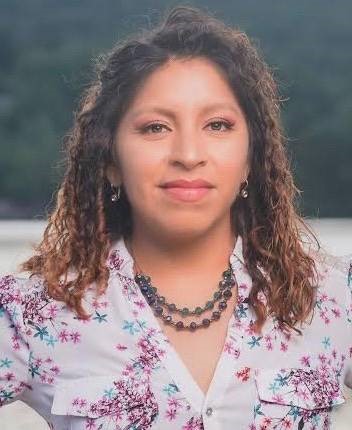
During Hispanic Heritage Month we feature the voices of members of the CW family. Today, we present a conversation we had with Monica Alvarracin, who is currently majoring in Health Information Management. Monica immigrated from Ecuador when she was 16 years old. Learning a new language and embracing a new culture was not an easy road for her. Among all the challenges she faced, she was laser focused on her strategy to succeed in life - Obtaining a college degree. She is now pursuing her degree at CW, and we couldn’t be happier to have her as a student and so deeply involved in all our extracurricular activities. When we asked her if she wanted to participate in the Hispanic Heritage Month celebrations, she immediately responded, yes! We made a list of questions, and here are her answers.
What country in Latin America would you attribute your ethnic heritage?
I was born in Ecuador, my ethnic heritage is Mestizo, which is a mix of Europeans/indigenous after the Spanish conquistadors sailed in Latin America.
What does it mean for you to be Hispanic?
Hispanic for me means speaking the united language of most countries in Latin America, carrying on traditions, customs, beliefs from my grandparents, walking with the rhythm of the music, the great cuisine, art and literature of my people.
Who are your top 3 favorite artists when you think of Hispanic Music?
- Shakira from Barranquilla- Colombia whom I’ve followed since I was a teenager, I love her music and her rhythm.
- Juan Fernando Velasco from Quito-Ecuador, his songs are romantic and soft, he also plays “Pasillo” which is considered a national musical style with a melancholic tone.
- Benito Antonio Martinez Ocasio, “Bad Bunny”, who is a songwriter I like to play when I take long rides. He gives me all great vibes, plus I like that he stays humble.
When you think of Hispanic food, your mind takes you to what country?
Every time when I think of food my mind takes me to my country, especially when it’s a traditional plate. I crave to find the flavors I delight when I was a child, and I try to find it in my memories, and my grandmother’s taste. Traditional dishes always bring me to festivals my family and I used to go to.
What changes are you hoping to bring to our society by being a college educated Hispanic?
As a Hispanic college student, I am hoping to leave a legacy, break the pattern of a typical Latina coming to the USA to work, make money and leave. So many times, I have been criticized by family members in my home country about me not making enough money and buying property. But I do not want to just make money, I want to be someone, I want to educate myself, to do better in life. I want to encourage people to educate themselves, I think everyone has a purpose and something great to offer and education in this great country is important, despite their legal status. I think education will also bring great leaders to our community, business people, and better community members.
How important is it for you to be bicultural?
For me it is important because now I live in this country. I have adopted these traditions. However, I have not forgotten those traditions of my country. Being bicultural is also being bilingual, and I am planning to pass on these traditions to my children, if I have children someday.
What is your favorite word/phrase in Spanish and what does it mean in English?
The phrase I use the most is “Dios le pague.” This saying was taught to me by my grandmother who spoke Quechua and Spanish, “Dios le pague” means God may pay you. We use Dios le pague, instead of saying “gracias”.
